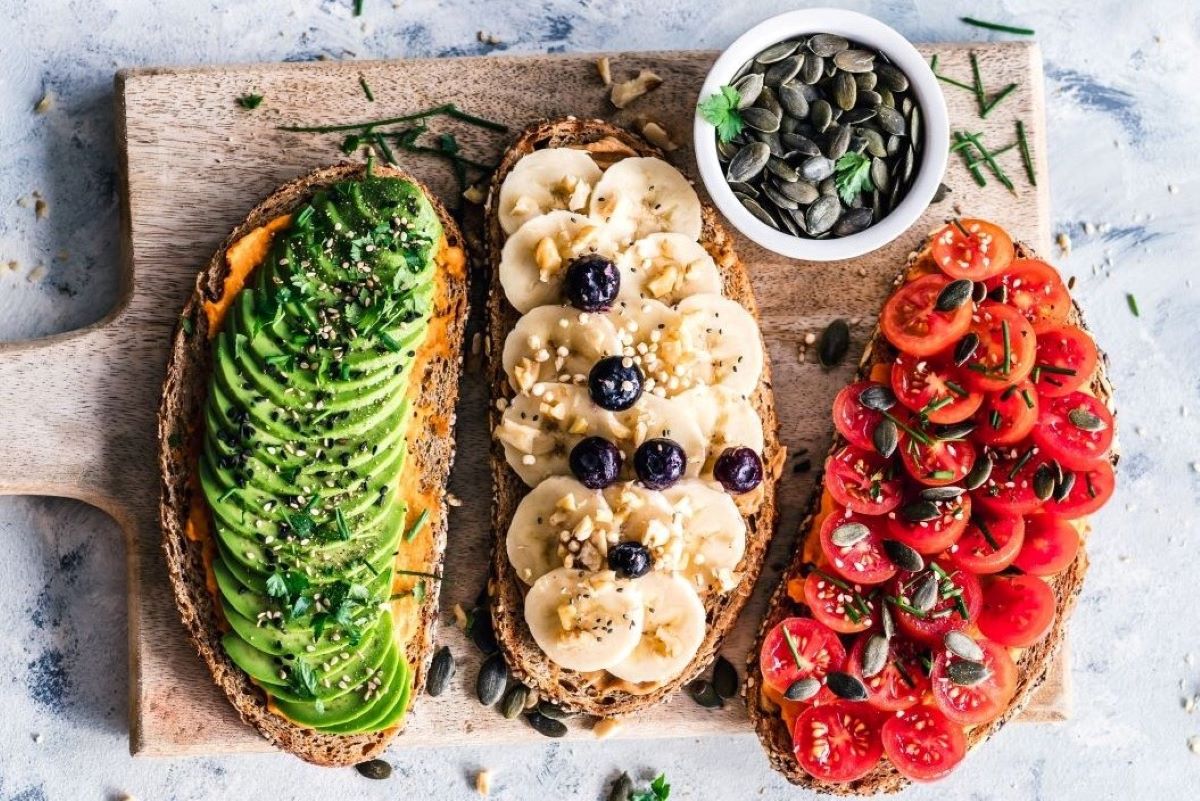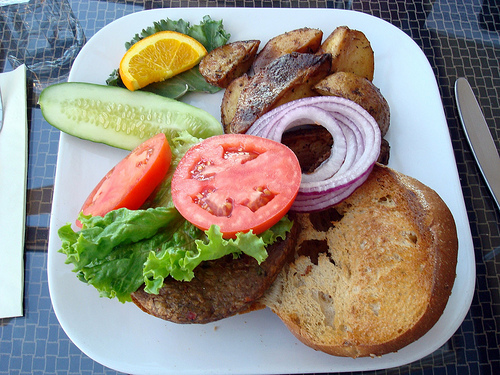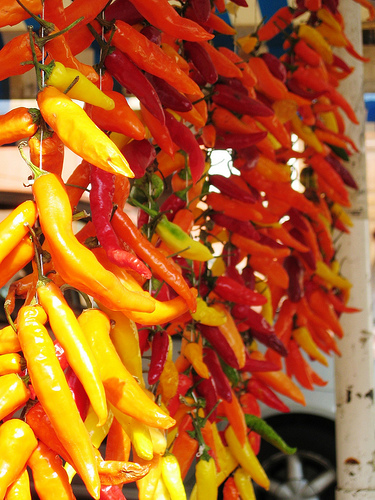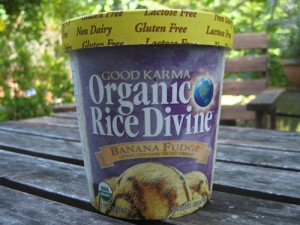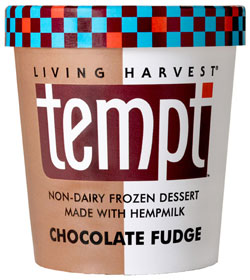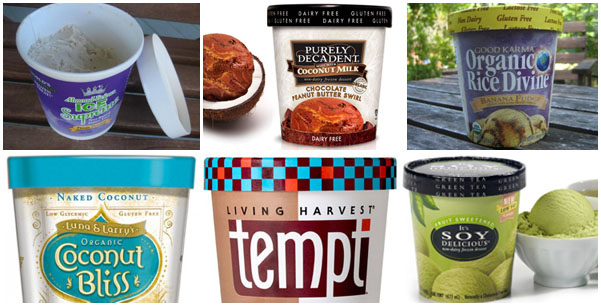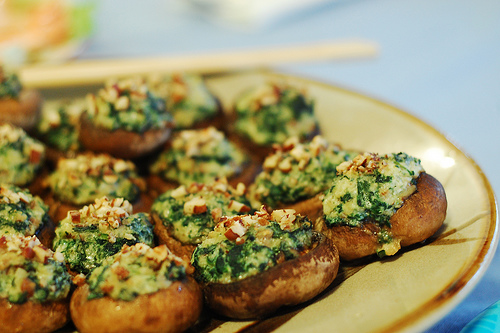Table of Contents
Fats get a bad rap in a society obsessed with low-fat diets and weight loss. However, as research has clearly demonstrated—not all fats are created equal; some are essential for good health.
There are several types of fats: most plant-based diets will be composed of unsaturated fat intake, which includes monounsaturated and polyunsaturated fatty acids. These are considered healthy fats. However, vegetable oil—a major source—is not healthy.
Conversely, saturated fats, trans fats, and hydrogenated oils often get (rightfully) labeled as unhealthy.
For those following a vegan diet, it’s essential to understand what found sources contain these different types of fats, and how they can impact health. This article will explore various key plant-based sources of fat and they can help vegans meet dietary needs safely.
Healthy Fats and Their Importance for the Body
Healthy fats, including monounsaturated and polyunsaturated fats, play an important role in maintaining health and wellbeing.
They aid in cell growth, brain function, and heart health, and are vital for absorbing key vitamins like A, D, E, and K. Good fats are also important for producing hormones and serve as a valuable energy source.
Fats support the body’s metabolism, aiding in regulating blood sugar levels, and even playing a role in weight management. They form an integral part of cell membranes, especially nerve cells, called neurons.

Heart Health
Contrary to the common misconception, consuming the right fat types can benefit heart health. Unsaturated fats can help reduce levels of LDL (low-density lipoprotein) cholesterol—the “bad” cholesterol—while increasing levels of HDL (high-density lipoprotein) cholesterol—the “good” cholesterol.
This cholesterol regulation aids in preventing the buildup of plaques in arteries, thereby reducing the risk of heart disease and stroke. Omega-3 fatty acids, a type of polyunsaturated fat, are particularly beneficial for heart health as they can lower blood pressure and decrease the risk of abnormal heart rhythms.
Research also suggests that omega-3s may decrease the risk of clotting by making blood platelets less sticky, further reducing heart disease risk. These fatty acids can fight inflammation, a process that can damage your blood vessels and lead to heart disease and stroke.

Body Energy
Besides their important role in maintaining heart health, healthy fats are essential for energy. Each gram of fat provides nine calories of energy, making it the most efficient energy source compared to protein and carbohydrates.
Unsaturated fats, particularly monounsaturated fats, provide long-lasting energy, making them a great way to fuel the body throughout the day.
They also help in maintaining the health of your skin and hair, promote proper eyesight, and help the body absorb and process nutrients.
For athletes and those who exercise regularly, healthy fats provide long-lasting fuel to keep them going.
Vegan Food Sources of Healthy Fats
There are three main types of fats that come from food:
- Monounsaturated Fat
- Polyunsaturated Fat
- Saturated Fat
All three of these fat types have their benefits within a diet, when consumed in the proper healthy amounts.
Vegan Monounsaturated Fat Sources
Monounsaturated fats are a type of healthy fats that are considered beneficial for heart health. Not only can they help lower bad LDL cholesterol levels, but they also can increase good HDL cholesterol, thus helping to prevent cardiovascular diseases.
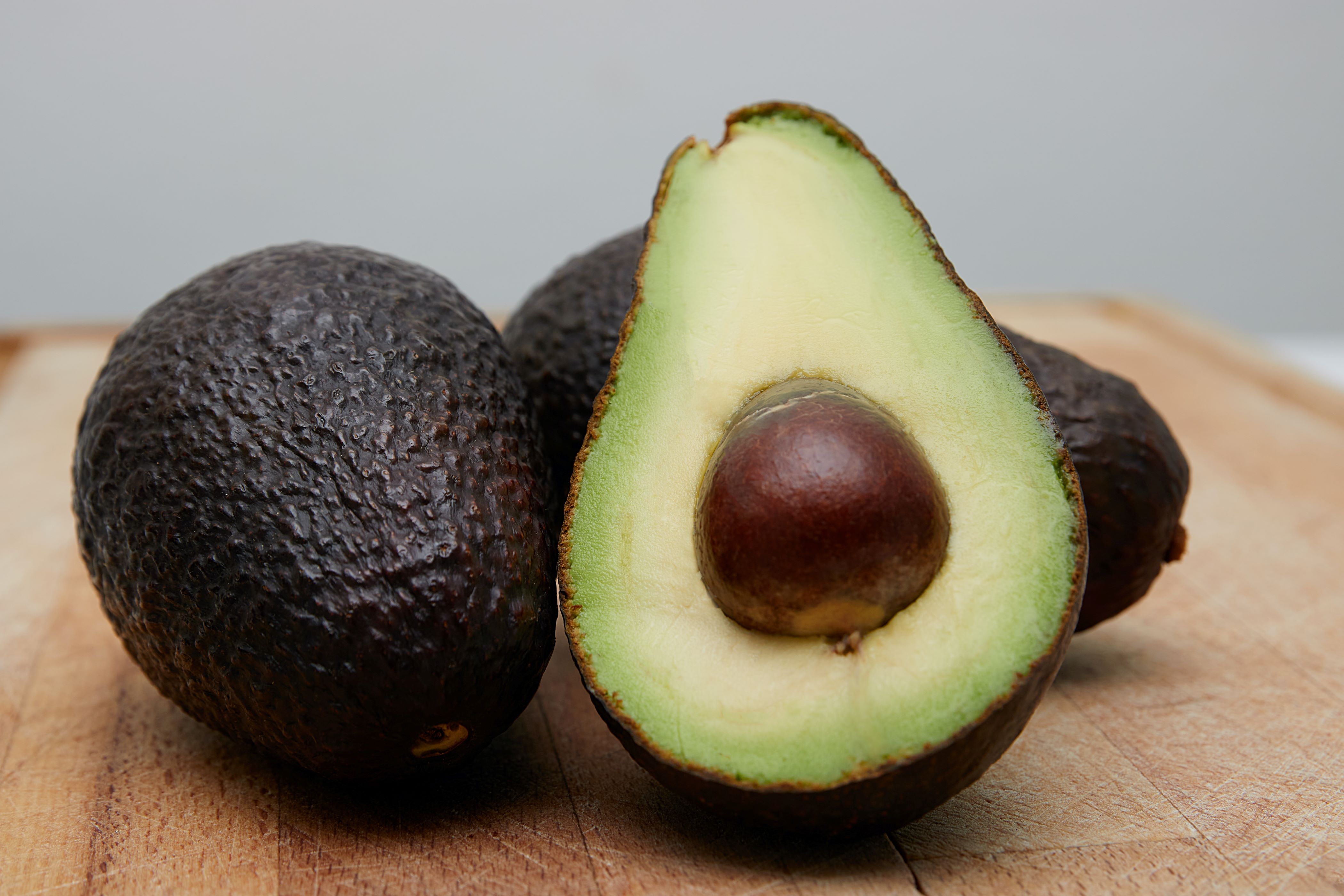
Avocado
Avocados are a fantastic source of monounsaturated fats. In addition to being creamy and delicious, avocados can help lower LDL cholesterol levels, reducing the risk of heart disease.
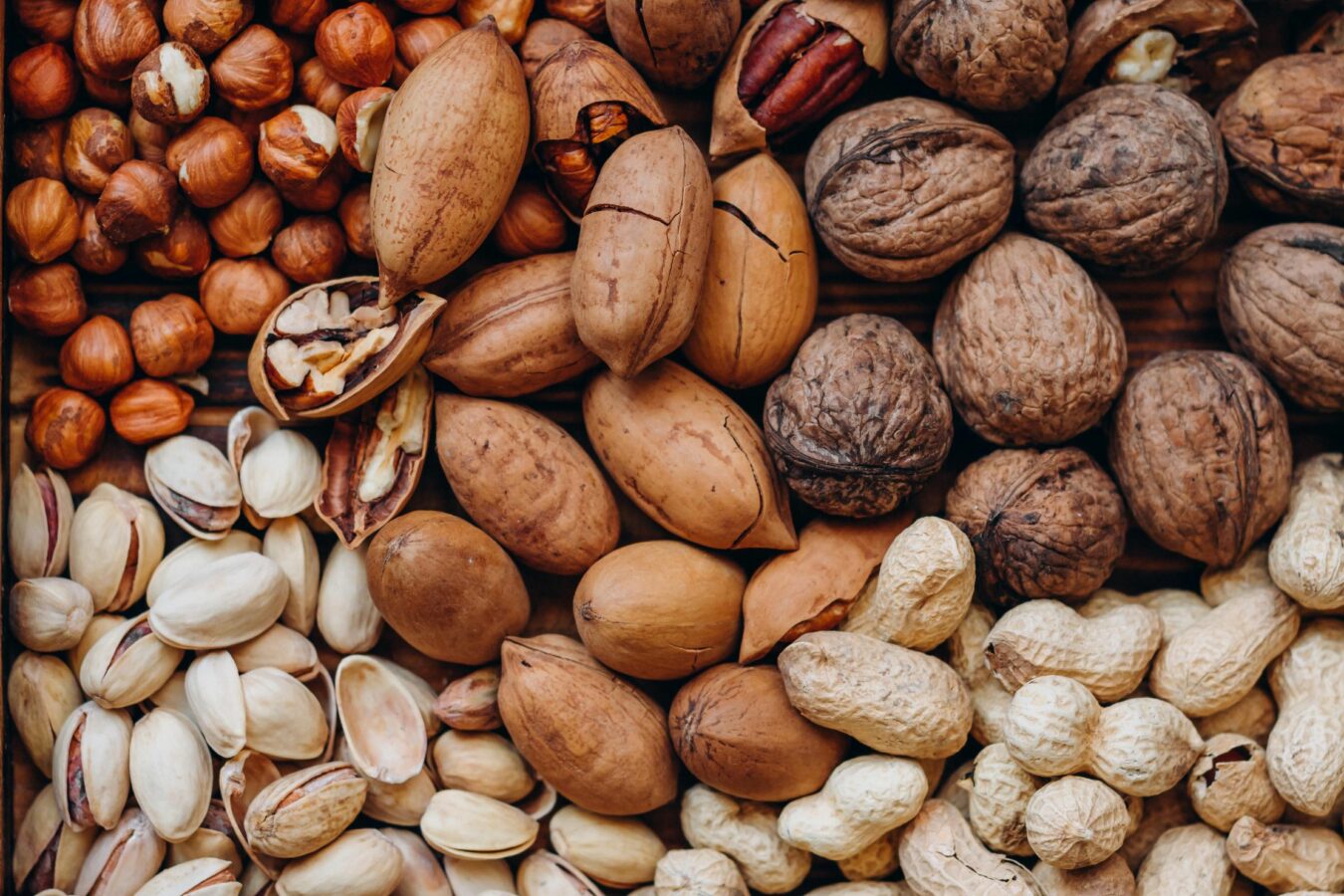
Nuts and Nut Butters
Nuts, such as almonds, cashews, and peanuts, along with their corresponding nut butters, are rich in monounsaturated fats. They’re also packed with protein, fiber, and essential nutrients, contributing to heart health and overall wellbeing.
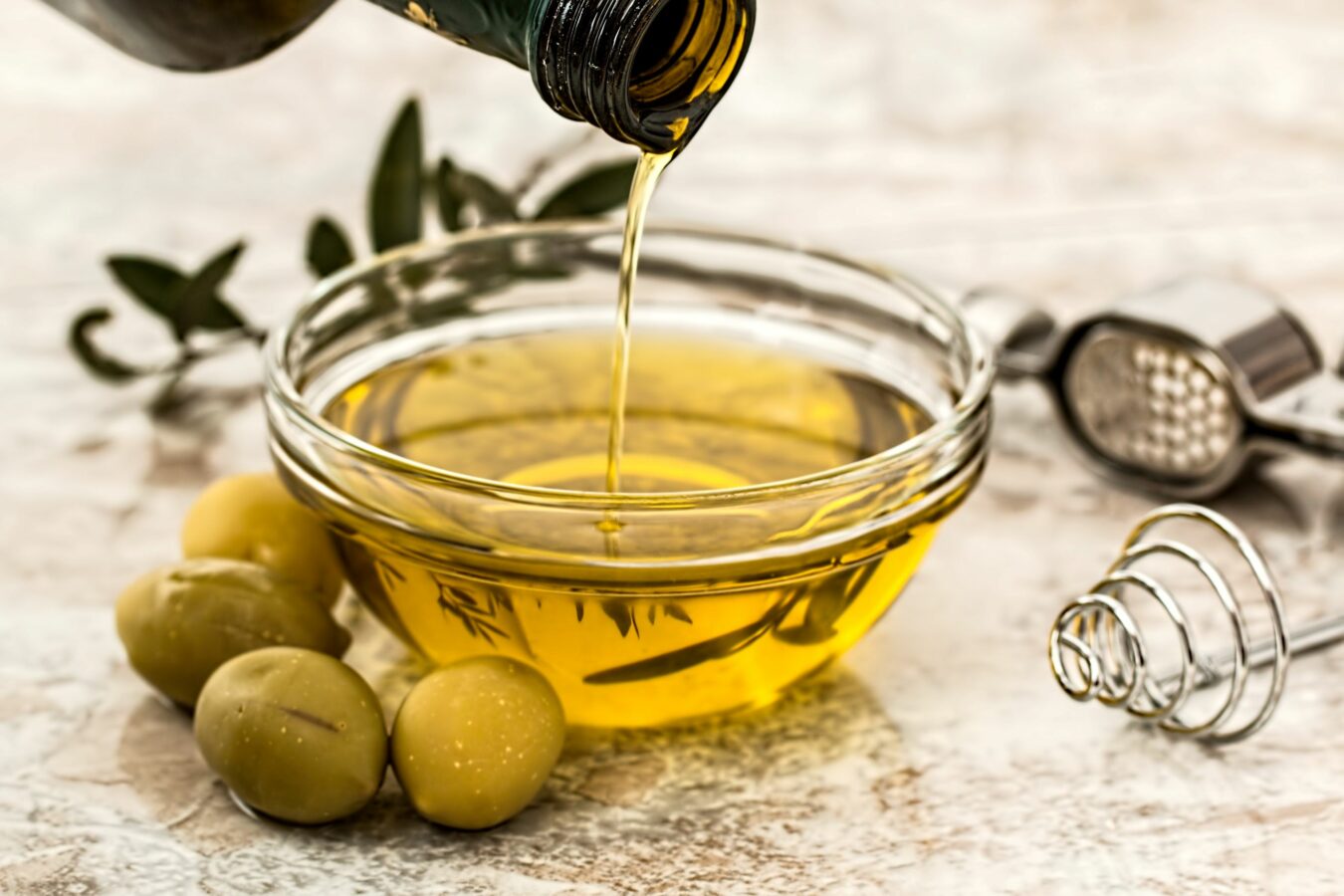
Olives and Olive Oil
Olives and olive oil are excellent sources of monounsaturated fats known for helping to reduce LDL Cholesterol levels and blood pressure. It’s the main reason they’ve have been a cornerstone of the Mediterranean diet for millenia.
Vegan Polyunsaturated Fat Sources
Polyunsaturated fats, another type of good fats, play a pivotal role in the body. These fats are essential for cell growth and brain function. They also help in maintaining heart health by lowering cholesterol levels. Omega-3 is much more important, as it is more difficult to obtain in the diet.
It’s important to keep the ratio of omega 3 and omega 6 fatty acids in balance. The “ideal” ratio is 4:1 omega 6:omega 3.
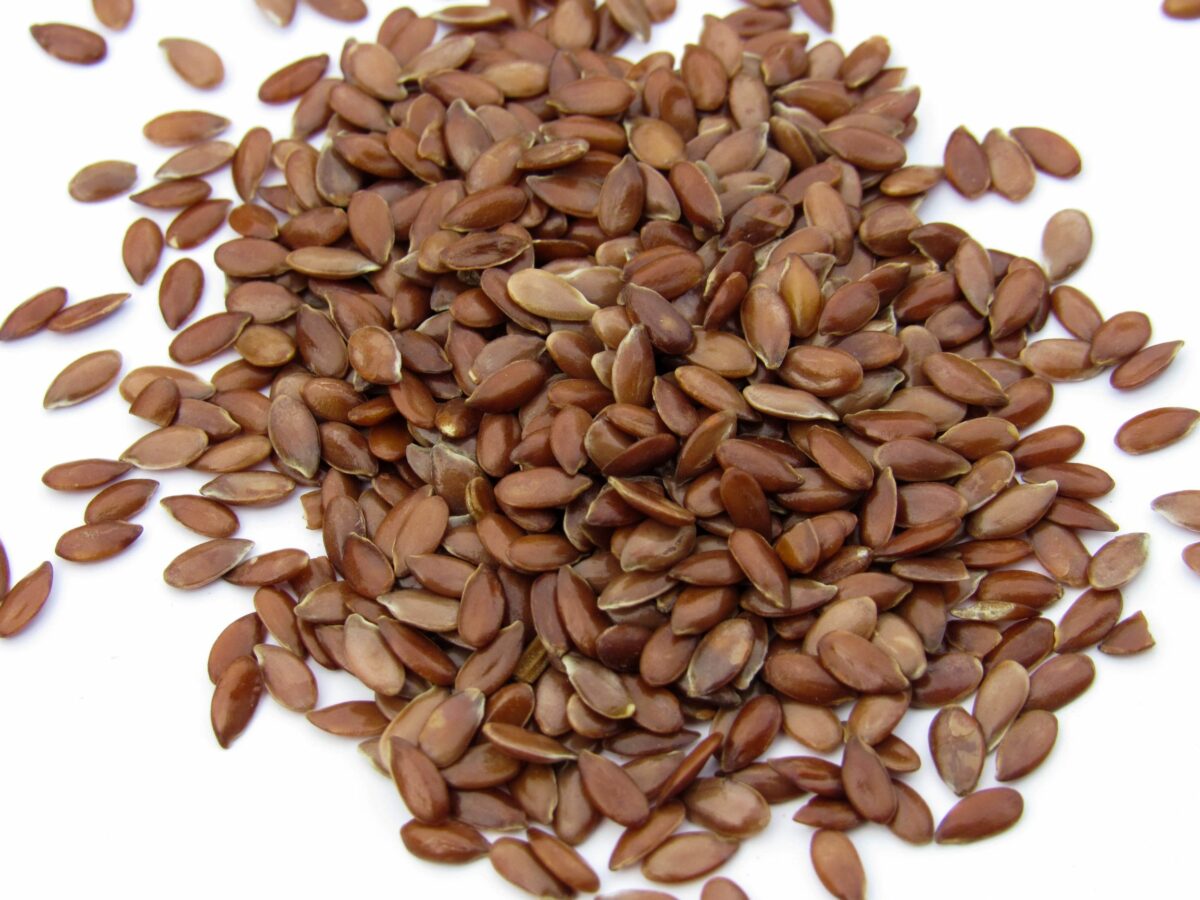
Flaxseeds and Flaxseed Oil
Flaxseeds and their oil are rich in alpha-linolenic acid (ALA), an Omega-3 fatty acid. Omega-3s are known for their anti-inflammatory properties and beneficial effects on brain health.
They also play an important role in heart health, as they can help reduce cholesterol levels and lower blood pressure.
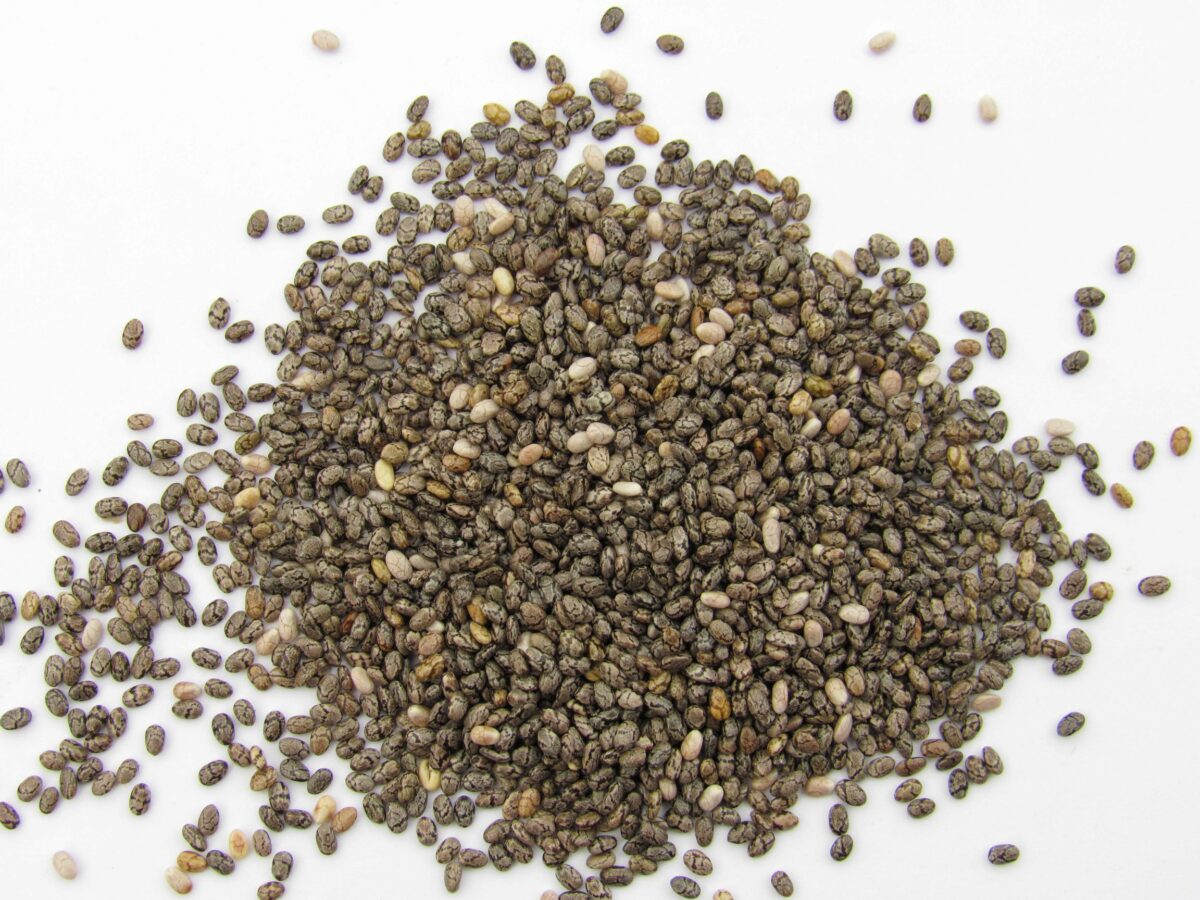
Chia Seeds
Chia seeds are another fantastic plant-based source of Omega-3 fatty acids. These tiny seeds are also high in fiber and protein, making them a nutritious addition to any meal.
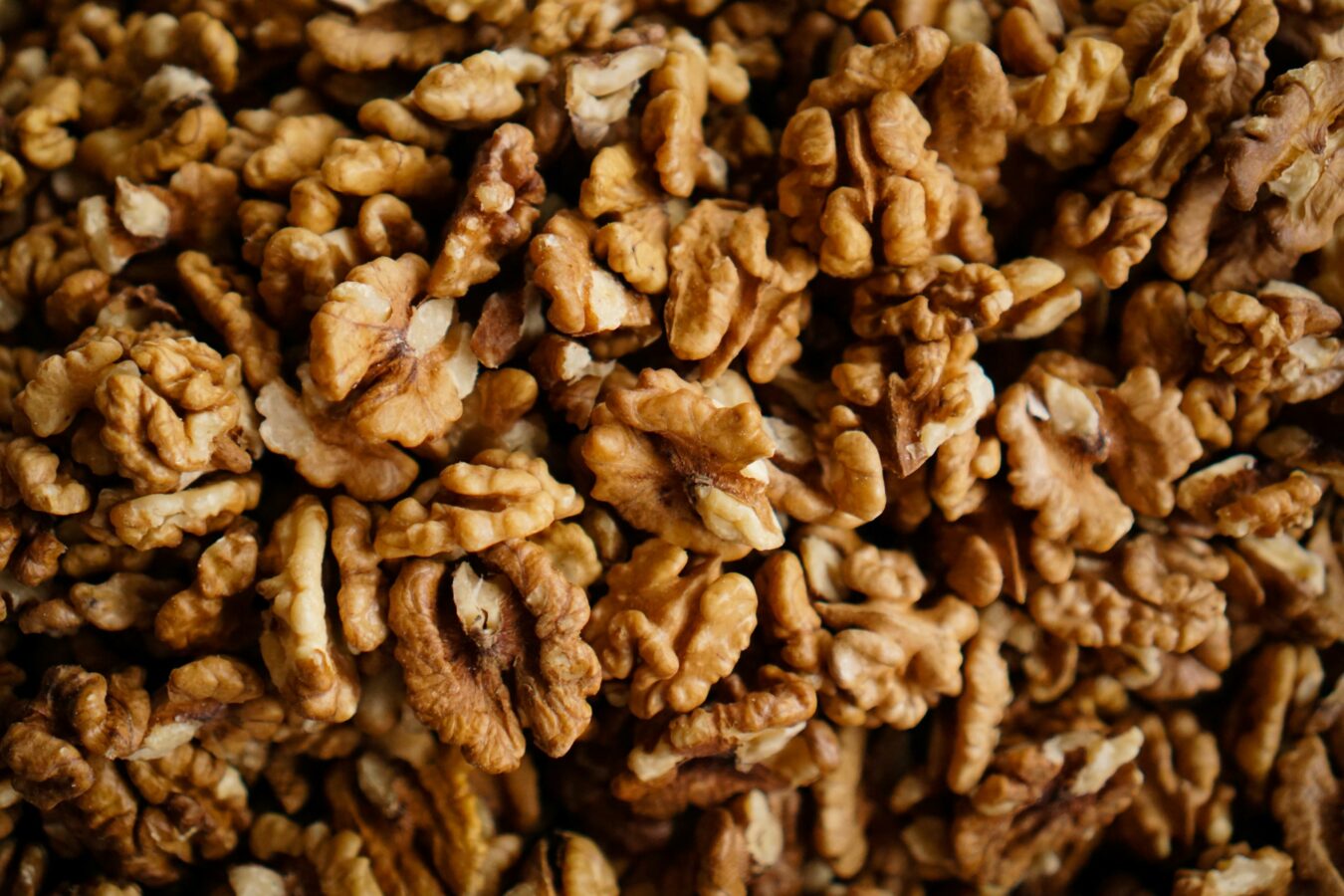
Walnuts
Walnuts are unique among nuts for their high polyunsaturated fat content and excellent Omega-3 fats. They contribute to heart and brain health and are a convenient, nutritious snack.
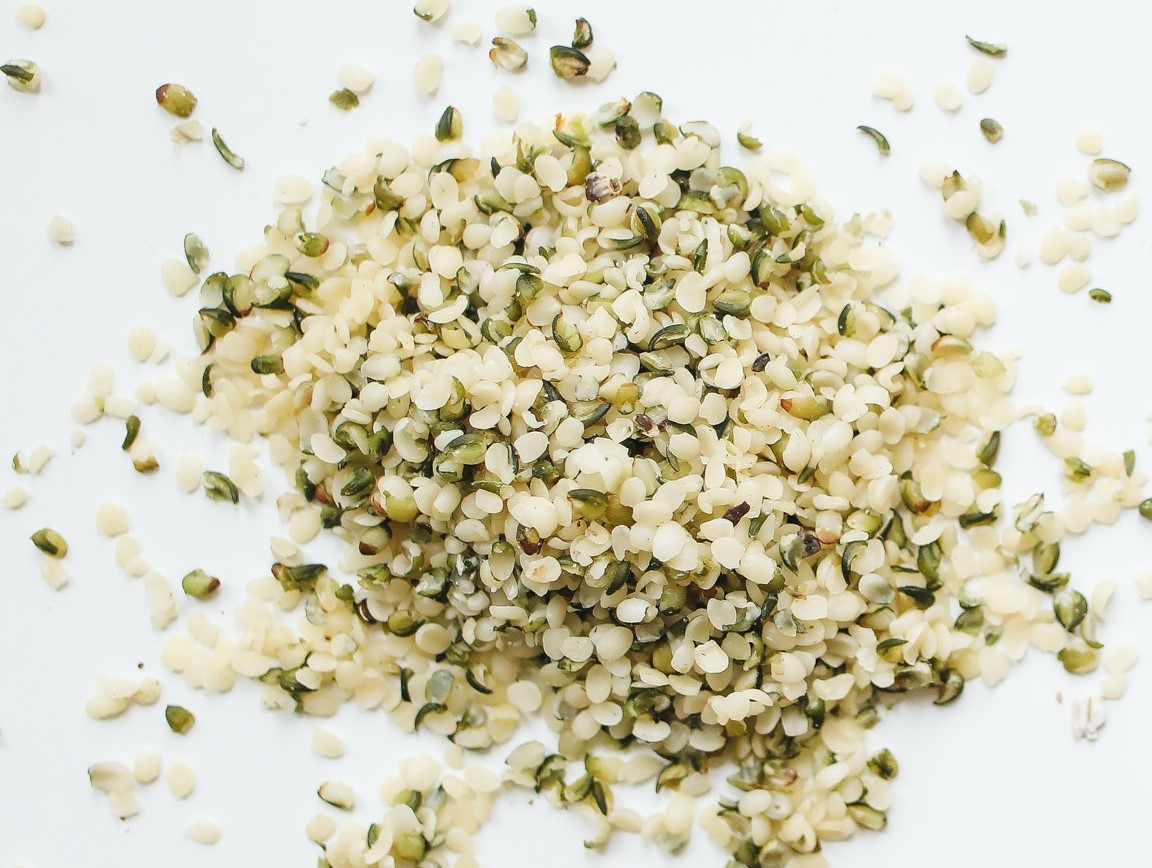
Hemp Seeds and Hemp Oil
Hemp seeds and hemp oil have an optimal ratio of Omega-6 to Omega-3 fatty acids, which benefits heart health. They’re also a great source of protein, providing all the essential amino acids the body can’t produce.
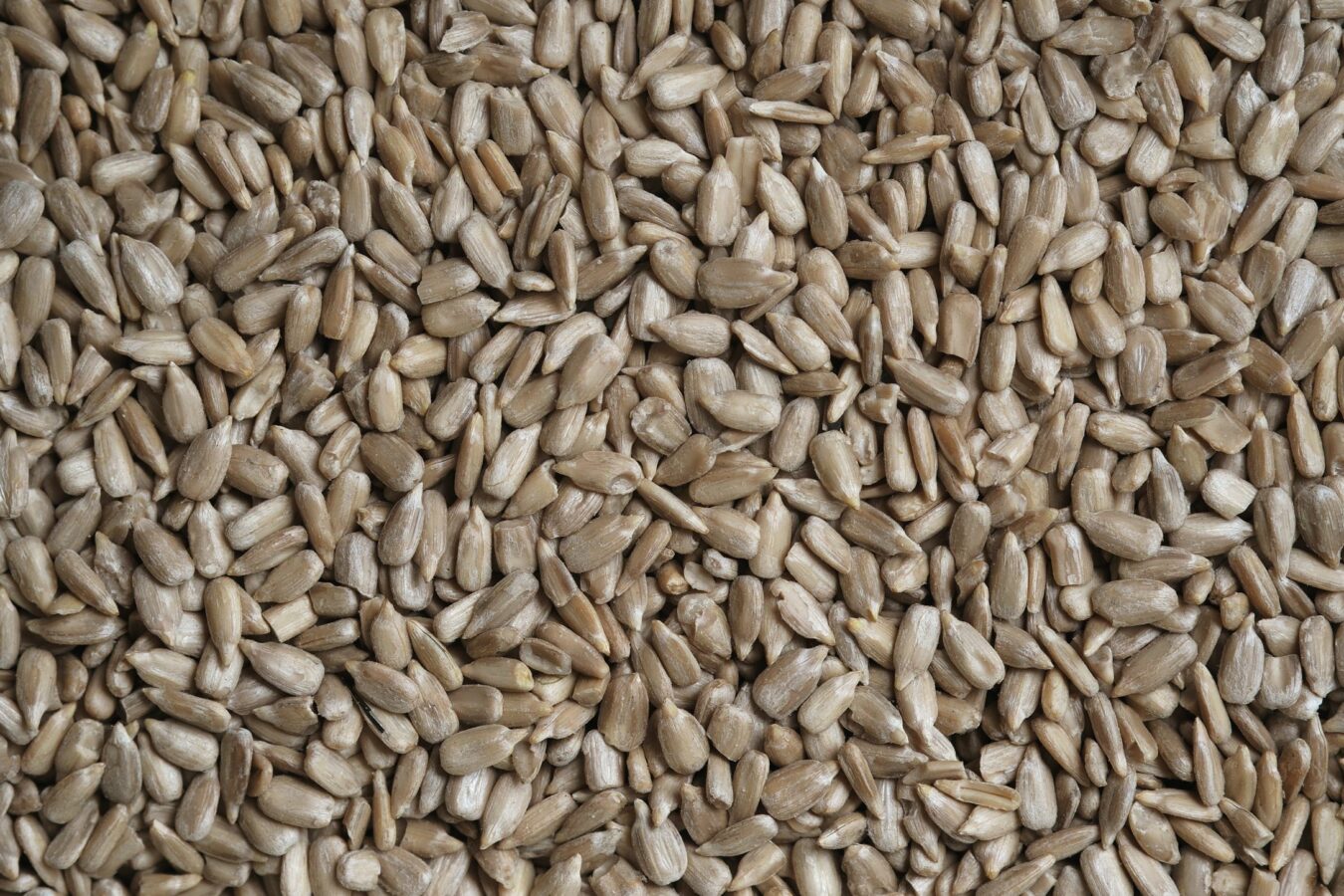
Sunflower Seeds
Sunflower seeds and their oil are rich in polyunsaturated fats, specifically Omega-6. While the Western diet often contains too much Omega-6 fats, they benefit the body in the context of a balanced diet with plenty of Omega-3s.
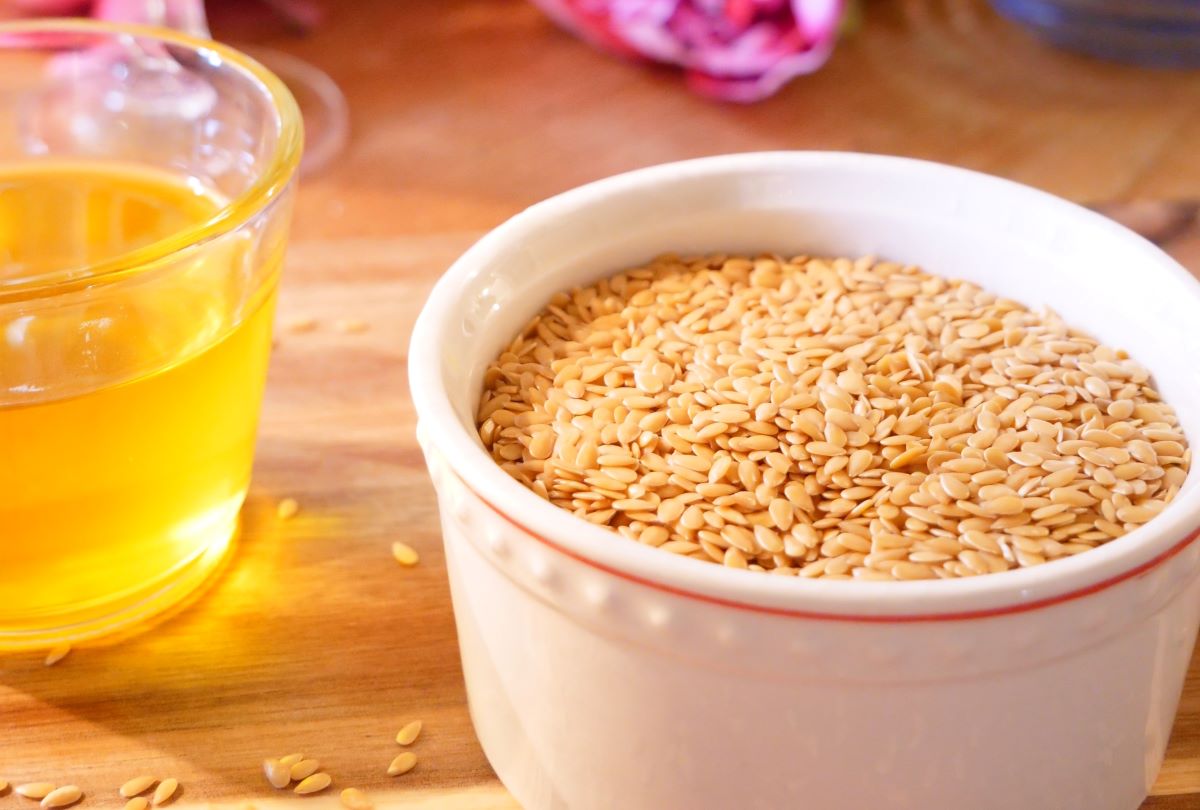
Sesame Oil
Sesame oil, derived from sesame seeds, has a distinctive flavor that adds a unique touch to dishes. It’s also a good source of polyunsaturated fats, including Omega-6 fatty acids.
Saturated Fat Sources
The topic of saturated fats can be contentious, with opinions from different health organizations varying pretty widely. Many plant-based proponents, like Dr. Greger, are adamantly against the use of any saturated fat in the diet.
Provided you’re physically healthy and do not have any pre-existing medical conditions, you probably don’t have to be as rigid in your food choices. Coconut milk and cacao—more so cacao, can be part of a healthy plant-based or vegan diet. We still recommend prioritizing monounsaturated and polyunsaturated fatty acids.
Not all saturated fats are created equal. Palm oil, for example, should be used sparingly.
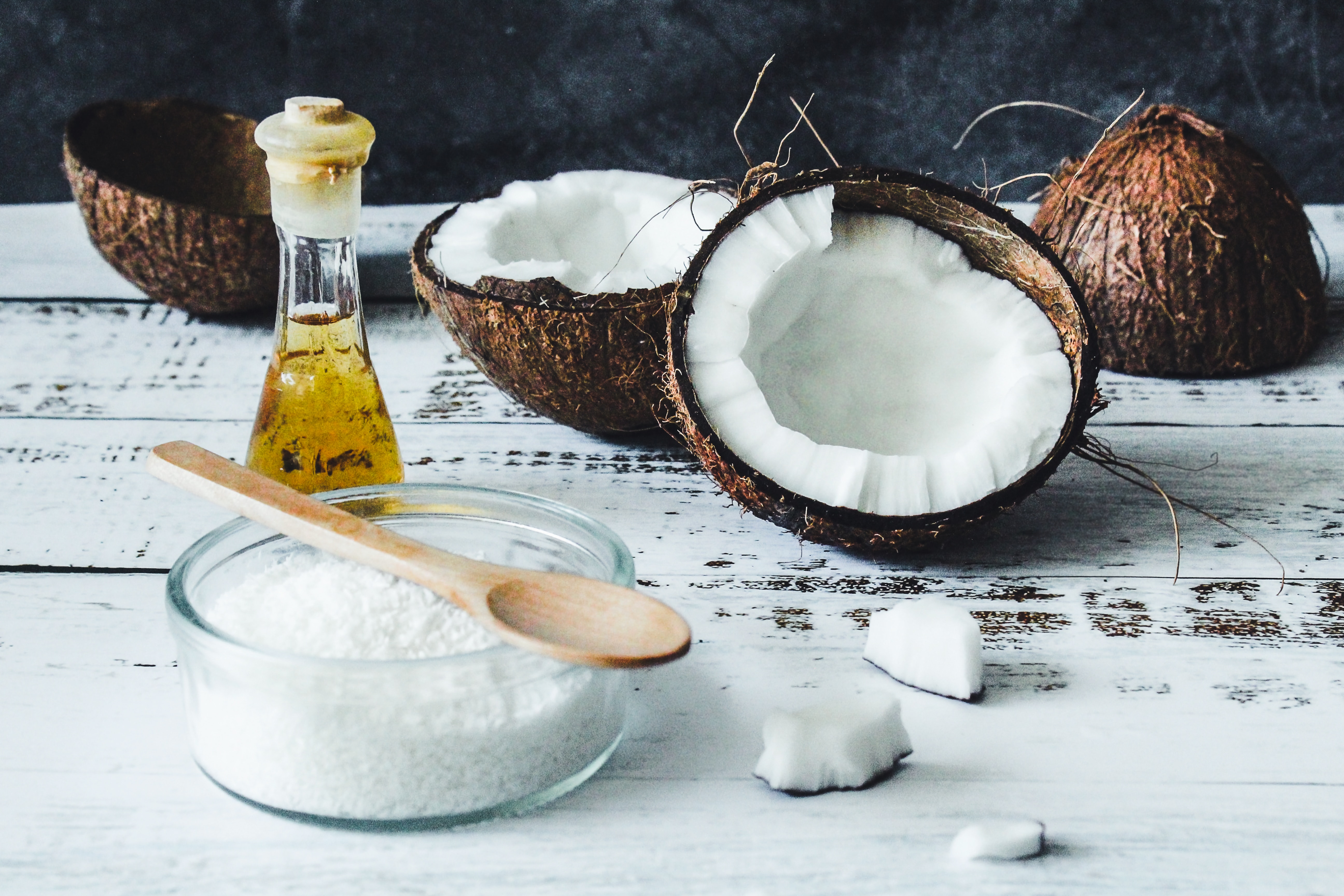
Coconut and Coconut Oil
Unlike most other fats categorized as long-chain fatty acids, most coconut fats are medium-chain triglycerides (MCTs). The body absorbs and utilizes MCTs differently and they can be quickly converted to energy, offering a more immediate fuel source.
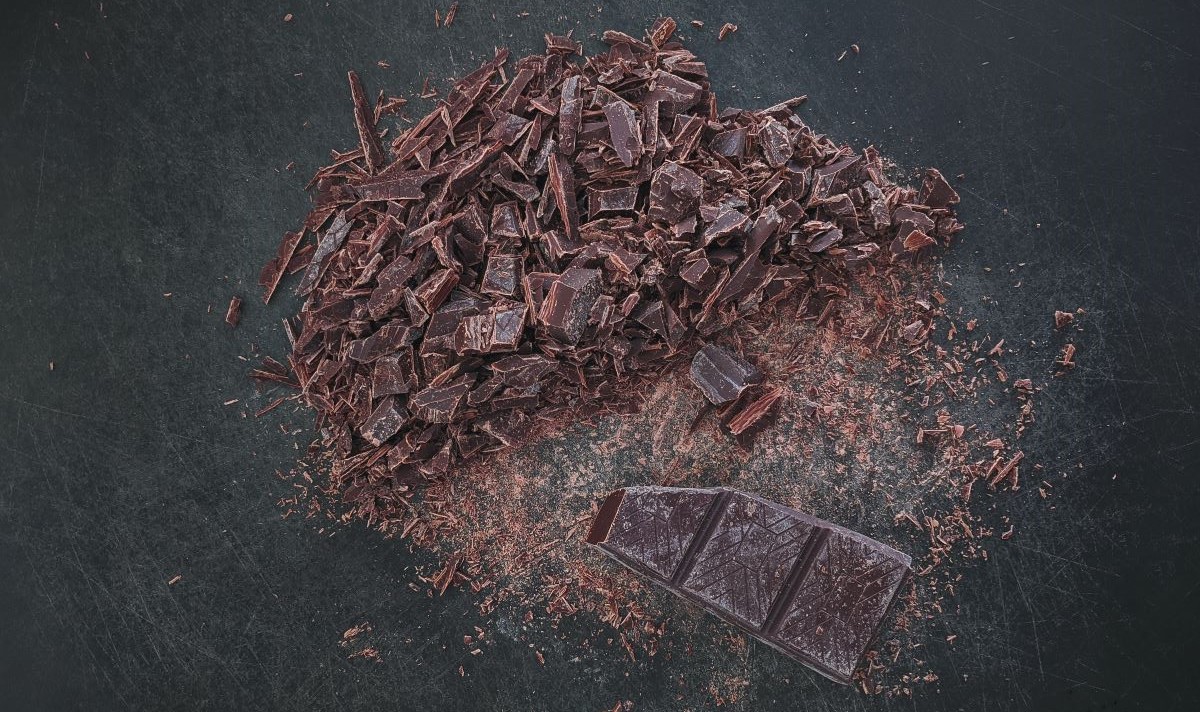
Cacao and Dark Chocolate
Raw cacao and high-quality dark chocolate are rich in monounsaturated fats and contain stearic acid, a type of saturated fat that doesn’t appear to raise cholesterol levels like other saturated fats.
How The Body Uses Healthy Fats
Understanding how the human body actually utilizes fats can help you appreciate their importance.
When we consume fats, they are digested and broken down into fatty acids and glycerol in our gastrointestinal tract. These components are absorbed into the bloodstream and transported to cells throughout the body. Once in the cells, they’re used for various functions, including energy production, building cellular structures, and forming the myelin sheaths that protect our neurons.
Additionally, fats play a crucial role in absorbing fat-soluble vitamins (A, D, E, and K), help regulate inflammation and immunity, and contribute to satiety, helping us feel full and satisfied after meals.
Regardless of the type of fat, the body is equipped to utilize it in ways that contribute to overall biological function. However, maintaining a balance between the different types of fats and prioritizing unsaturated over saturated fats is key to ensuring optimal health and wellbeing—reducing the risk of cardiovascular disease and stroke.
Balancing Fat Intake in a Vegan Diet
While understanding the different types of fats is fundamental, knowing how to balance them within the context of a vegan diet is equally vital.
The World Health Organization (WHO) recommends that fats make up 20-35% of total energy intake, with unsaturated fats prioritized over saturated fats and trans fats largely avoided.
Understanding Fat Ratios
Achieving a healthy balance of fats in a vegan diet requires some attention to the different types of fats consumed. A good rule of thumb is to aim for a higher intake of unsaturated fats, including monounsaturated and polyunsaturated fats, and a lower intake of saturated fats. For polyunsaturated fats, a healthy balance of omega-6 to omega-3 fatty acids is important, with a recommended ratio of around 4:1. An excess of omega-6 fatty acids, commonly found in oils like corn, soybean, and safflower, can lead to inflammation if not balanced with enough omega-3s.
Ensuring Adequate Omega-3 Intake
Ensuring an adequate intake of omega-3 fatty acids for vegans can seem challenging, as oily fish are often touted as the primary source of these beneficial fats.
However, several plant-based sources are rich in the omega-3 ALA, like flaxseeds, chia seeds, hemp seeds, and walnuts. These can then convert within the body to DHA.
Consuming various foods regularly can help maintain a healthy omega-3 intake. Some vegans may consider algae-based DHA and EPA supplements to help achieve a more optimal omega-3 status.
Avoiding Excessive Saturated Fat Intake
While saturated fats can be part of a healthy diet when sourced from whole food like shredded coconut and cacao, they should never be the predominant type of fat in your diet.
It’s wise to moderate these and other saturated fat-rich foods and prioritize foods rich in unsaturated fats instead. Consider the high saturated fat content of most vegan snacks and junk food.
Fat Quality vs Quantity
While the amount of fat in your diet is important, the quality of the fat sources you choose matters even more. Consuming fats from a variety of whole, unprocessed plant-based foods will provide an important balance of different types of fats and an array of other essential nutrients.
This approach can lead to better overall health outcomes than simply reducing total fat intake, or cutting it out altogether. Even on a high-carb diet, you still need a minimum amount (5-10% total calories) of fat, ideally from omega-3 polyunsaturated fatty acids, and monounsaturated fatty acids.
Remember to prioritize whole foods like nuts, seeds, olives, avocados. Fat is not the enemy; the key lies in choosing the right types of fats and maintaining a healthy balance in your diet. Avoid processed and refined food—always stick to whole food sources.
Lifestyle Factors that Impact Healthy Fat Needs
Each person’s dietary habits and routine will be slightly unique. Same applies to their body composition, dietary restrictions, and health conditions.
Several factors, including age, sex, physical activity level, and medical conditions, can influence the amount and types of fats you should consume.
Age
As you age, your metabolic rate gradually slows down, affecting your energy needs and thus lowering your fat requirements. Those with cardiovascular disease or high cholesterol levels will want to completely restrict their saturated fat intake and opt primarily for omega-3 fatty acids derived from chia seeds, flaxseeds, walnuts, and legumes.
For older adults, focusing on nutrient-rich food sources of fats, like avocados, nuts, and seeds, is crucial for providing essential fatty acids and supporting energy levels.
Pregnancy and Lactation
Pregnancy and lactation significantly increase a woman’s caloric needs, including those derived from healthy fats. DHA, a type of omega-3 fatty acid, is particularly important for the brain development of the fetus. As such, vegan women who are pregnant or breastfeeding might consider supplementing their diet with algae-based DHA supplements in addition to consuming a variety of plant-based omega-3 sources.
FAQ
What are some good vegan sources of healthy fats?
Avocado, nuts (such as almonds, walnuts, and pistachios), seeds (like chia, flax, and pumpkin seeds), and plant-based oils (like olive oil, coconut oil, and avocado oil) are excellent sources of healthy fats for vegans.
Are there any fats to avoid or limit?
While most plant-based fats are healthy, it’s a good idea to moderate consumption of highly processed oils and trans fats found in some packaged vegan foods. Read labels and choose whole-food sources whenever possible.
How are healthy fats beneficial to my health?
Healthy fats are essential for brain health, hormone production, and overall cell function. They also support cardiovascular health by reducing inflammation and promoting good cholesterol levels.
